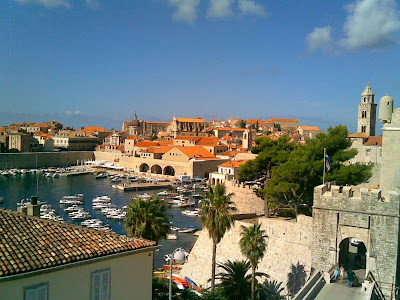This week Barclays was fined a total of £290 million for having repeatedly lied about the amount it was costing the bank to borrow money. The time for apology may need to be kept open a little while longer.
Why did they lie? Because along with those from other major banks, their figures fed the rates for loans between financial institutions, notably LIBOR (the London Inter-Bank Offered Rate) and EURIBOR (the Euro Inter-Bank Offered Rate). Misleading figures could nudge those rates up or down to suit the bank or individuals within it.
The disclosure of this behaviour has unsurprisingly led to a hue and cry for Diamond. The haughty contempt he displayed to the Treasury Committee makes one feel he brought his own fate on himself. Besides, he took – he certainly didn’t earn – £18 million last year which makes it difficult to feel he deserves much pity.
 |
| Diamond in the rough: his ilk need controlling not witch-hunting |
The inclination to reach for a pitch fork and a torch, literally or metaphorically, is deeply entrenched in all of us and needs to be resisted.
So let me say at once that it’s all very well for David Cameron and George Osborne to hint that the behaviour of the bankers ought to be subject to criminal sanctions. If the behaviour wasn’t illegal at the time the deed was done, then it would be far worse to take legal action against its perpetrator than to let him get away with it: retrospective legislation, making it illegal today to do have done something legitimate yesterday, is the hallmark of the vilest dictatorships.
But in any case I’m not interested in seeing Bob Diamond sitting in a prison cell. I’m entirely indifferent to his personal fate. He stays as Chief Executive, he goes; he finds another job in the banking sector or he retires to live off his millions; I don’t care either way.
What matters to me is that he’s announced that he expects no bonus this year. Stephen Hester, his opposite number at Royal Bank of Scotland, has said the same, after the computer glitch that meant millions of accounts failed to update correctly. That has to be a good thing, because it was the temptation of taking casino or Mafia-style incomes that incentivised the bad behaviour of the banks.
Britain is preparing legislation to restore, at least in part, the division between retail banking, the kind most of us use, and merchant banking, the financial gambling where fortunes are lost (ours) or won (theirs). Though it won’t happen until 2019, it is a relief to know that the measure will in a few years begin to undo the damage done by the US repeal of the Glass-Steagall Act (which enforced the separation between the two sides of banking) in the 1980s.
That Act was introduced in the wake of the last great depression, in the 1930s. It was designed to limit the chances of such a depression happening again. Those previsions were repealed by Ronald Reagan, and his example was enthusiastically followed by Margaret Thatcher and all those who favoured making a ‘bonfire of red tape’ by removing regulatory safeguards.
The effect? 25 years of irrational, unfettered fortune-hunting in the finance sector followed by the collapse of 2008 from which we’re still suffering. We need to remember that particular chapter of recent history when people sing the praises of Reagan and Thatcher, as they do rather too often these days.
Such understanding matters far more than what happens to Bob Diamond or any other individual. It says that banking is supposed to serve industry and society, not to be their masters; but it recognises that the people who go into it are driven, as most of us are, by the desire to better themselves, or even by inordinate greed; without safeguards against that greed, the sector will poison us all. As it has.
That’s why the Bob Diamond and Stephen Hester affairs are important and encouraging. They are helping to create a healthier set of attitudes. And not a day too soon.
Having said that all that, I am still human. And when I see a man who said it was time for the banks to stop apologising being forced to apologise for the behaviour of his own bank – well, though I have great admiration for @mulberrybush, I can’t help feeling a certain satisfaction. I can’t help smiling.
Schadenfreude, I know, but it’s stronger than me and I enjoy it too much to stop.
At least I’m not hoping to see Bob Diamond in a prison cell, far less on top of a bonfire.
Just with the smirk off his face.



















